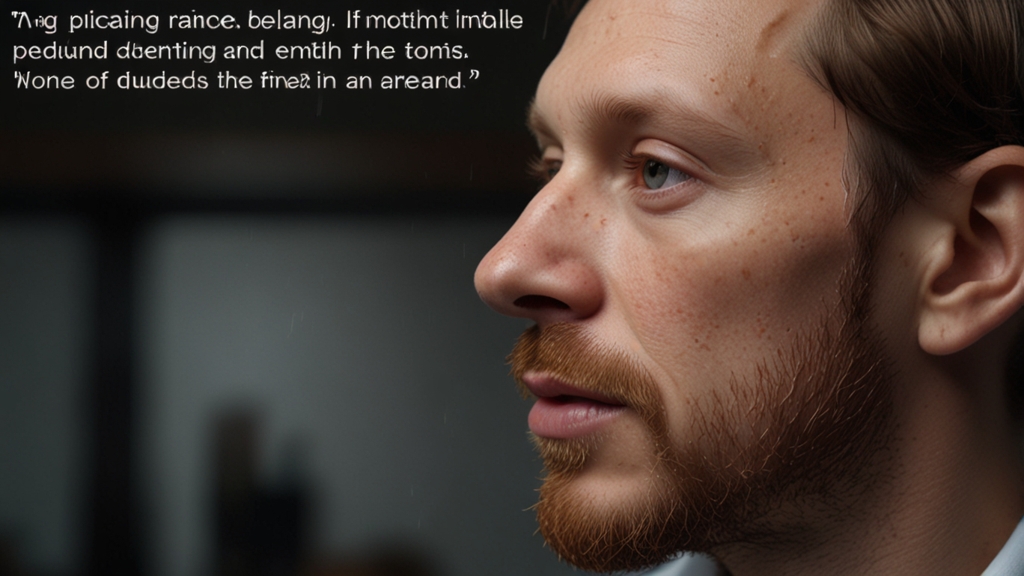The Art of Leadership: What We Can Learn from Moses
Leadership is as much an art as it is a science. Throughout history, remarkable leaders have emerged, demonstrating qualities that transcend time and culture. One such figure is Moses—an extraordinary leader whose story is detailed in the biblical book of Exodus. By examining the leadership style of Moses, we can uncover valuable lessons that are still relevant in today’s world, whether in business, politics, or personal growth.
Leading Through Vision
Moses was able to lead because he had a clear vision. He knew that his people, the Israelites, were destined for freedom from Egyptian slavery and a prosperous life in the Promised Land. This vision was not only a motivator for Moses but also served as a unifying goal for his followers. Understanding the power of a clear and compelling vision is crucial for any leader.
“Therefore, say to the children of Israel: ‘I am the Lord; I will free you from the burdens of the Egyptians and deliver you from their bondage.’” (Exodus 6:6)
A leader must be able to see beyond current circumstances and articulate a hopeful future that others can believe in and strive towards. This vision can inspire and mobilize people to achieve extraordinary feats.
Empathy and Compassion
Moses exhibited profound empathy and compassion for his people. He was deeply affected by their suffering and took action to alleviate their pain. This is a critical characteristic of effective leadership. Empathy helps leaders connect with their followers on an emotional level, fostering loyalty and trust.
“When Pharaoh heard of it, he sought to kill Moses. But Moses fled from Pharaoh and stayed in the land of Midian; and he sat down by a well.” (Exodus 2:15)
In modern leadership scenarios, demonstrating empathy can be as simple as actively listening to team members, acknowledging their struggles, and showing a genuine interest in their well-being. It creates a culture of inclusivity and support, which can significantly enhance team cohesion and performance.
Resilience in the Face of Adversity
One of Moses's standout qualities was his resilience. Leading the Israelites out of Egypt was fraught with challenges—whether it was the wrath of Pharaoh, the hardships of the desert, or the frequent dissent among his own people. Despite these trials, Moses remained steadfast and unwavering in his mission.
“But Moses said to the people, ‘Do not be afraid, stand firm, and see the deliverance that the Lord will accomplish for you today.’” (Exodus 14:13)
Resilience involves staying the course even when things get tough. It is about maintaining focus, adapting to new circumstances, and finding innovative solutions to problems. Modern leaders can draw from Moses's resilience to navigate the complexities and uncertainties inherent in leadership roles.
Empowerment and Delegation
Understanding that he could not accomplish everything on his own, Moses wisely delegated responsibilities to others. He appointed capable leaders to manage smaller groups within the larger Israelite community, ensuring more effective governance and making sure that people’s needs were met.
Today's leaders can learn the importance of empowerment and delegation from Moses. By entrusting tasks to competent individuals, leaders can focus on higher-level strategic initiatives, foster skill development within their teams, and prevent burnout.
The Courage to Challenge the Status Quo
Moses did not shy away from confronting Pharaoh, the most powerful ruler of the time, with a message that was nothing short of revolutionary: to free the Israelites from slavery. Challenging the status quo is often met with resistance and danger, but it's essential for transformational leadership.
Effective leaders possess the courage to question existing systems and practices and to push for necessary change. They understand that growth often requires stepping out of comfort zones and making tough, even unpopular, decisions.
Conclusion
The story of Moses is rich with leadership lessons that are enduring and impactful. From casting a compelling vision and exhibiting empathy to demonstrating resilience and embracing delegation, Moses’s journey provides timeless insights into effective leadership. As we navigate the complexities of modern-day leadership, we can draw immense inspiration and practical guidance from this ancient yet ever-relevant narrative.
Ultimately, the art of leadership, as exemplified by Moses, lies in the ability to inspire, connect with, and elevate those we lead, guiding them towards a shared and glorious future.








